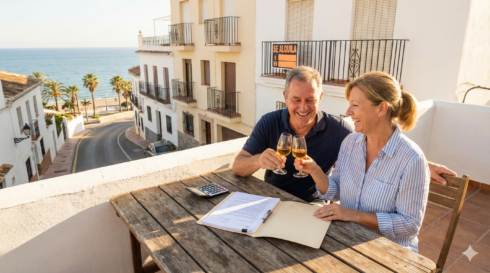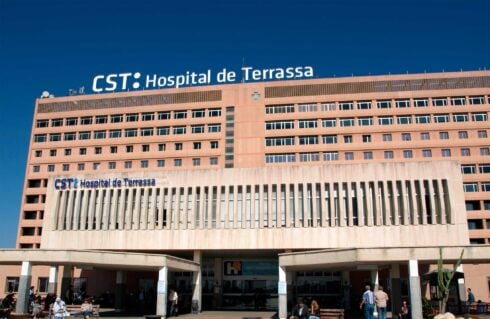QUICKER airport queues, the chance of UK students rejoining Erasmus, and new guarantees on citizens’ rights – those are some of the headline promises from a landmark agreement signed by Spain and the UK this week.
The framework, signed in London on September 3, is not legally binding, but it lays out dozens of pledges covering travel, business, defence, climate, and culture.
Both governments called it a reset between ‘old friends and close allies’ after years of post-Brexit strain.
What does it mean for travellers?
The biggest practical win is reciprocal access to e-gates. This means British holidaymakers flying into Spain could soon use the same automatic passport scanners as EU citizens, cutting down long queues at airports.
In return, Spaniards arriving in the UK would enjoy the same fast-track treatment. Officials said the smoother entry process would be a ‘visible symbol’ of closer ties.
What about young people and students?
The deal highlights plans for a youth mobility scheme – a system of temporary visas allowing young people to live, work or study more easily in each other’s country. Surely heaven to the ears of young people trapped by Brext in the United Kingdom.
It also revives hopes that Britain might rejoin Erasmus+, the EU’s student exchange programme that opened doors for thousands of young Brits until Brexit pulled them out.
If agreed, it would once again let UK students study across Europe with financial support, and bring more Europeans to British universities.
What’s in it for expats?
There are fresh guarantees for the millions of British nationals in Spain and Spaniards in the UK.
The framework reaffirms rights already protected under the Withdrawal Agreement – like residency and healthcare – but also promises to work on problems that fall outside it, including social security coordination.
That means pensions, benefits, and healthcare entitlements for those not covered by Brexit rules will remain on the table.
How will businesses benefit?
The two countries are launching a new Trade and Investment Dialogue with annual meetings between ministers and business leaders.
It’s designed to cut red tape and create opportunities for small and medium-sized enterprises.
For example, there could be smoother rules for short-term business travel, or new cooperation in science and technology through EU programmes like Horizon Europe.
Both sides also want to team up on digital tech, space projects, and even decarbonising fishing fleets.
Climate and energy: what’s planned?
London and Madrid will sign a new energy memorandum to pool expertise on renewable power.
This includes rooftop solar, offshore wind, hydrogen, and the unique challenges of ‘island grids’ like the Canaries or the UK’s smaller systems.
An annual clean energy business panel will bring companies together to speed up investment in the green transition.
For readers, the practical impact could mean more renewable energy projects, lower carbon emissions, and possibly lower long-term energy costs.
Security and defence: what’s changing?
A new Defence Memorandum of Understanding will bring the two countries closer on strategy, weapons development, and military cooperation.
That means British and Spanish armed forces are expected to train and operate together more often, while their industries may jointly develop defence technology.
On the policing side, both countries will expand cooperation against organised crime, drug smuggling, terrorism and cyber threats, using shared intelligence through Europol and Interpol.
Culture, sport and daily life
The framework also highlights cultural cooperation – with continued support for the British Council, Instituto Cervantes, and Spanish-British educational programmes.
Sport is on the agenda too: Spain and the UK will share expertise on developing women’s sport and staging major tournaments, with the UK set to host EURO 2028 and Spain co-hosting the 2030 World Cup.
Another everyday detail is recognition of disabled parking permits – meaning the UK’s Blue Badge and Spanish permits could be honoured in both countries, a boost for disabled travellers.
Why does it matter?
None of this is guaranteed – the framework is political, not legally binding.
But it creates annual dialogues and memorandums that lock both governments into a rhythm of meetings and progress checks.
That means there is now a structured way to push forward on the things that directly affect citizens: faster borders, student exchanges, pensions and healthcare, cleaner energy, and safer streets.
For readers, the big milestones to watch are:
- Whether e-gates are actually switched on for Brits in Spanish airports.
- Whether a youth mobility scheme and Erasmus+ deal are struck.
- Whether the energy memorandum is signed and real projects follow.
- Whether the defence pact moves from paper to practice.
If those promises are delivered, the talk of ‘old friends and close allies’ could soon translate into faster holidays, new opportunities for young people, and deeper cooperation on everything from crime-fighting to climate change.
Click here to read more Politics News from The Olive Press.









Let’s hope that where there’s a will there’s a way is relevant in this encouraging scenario.